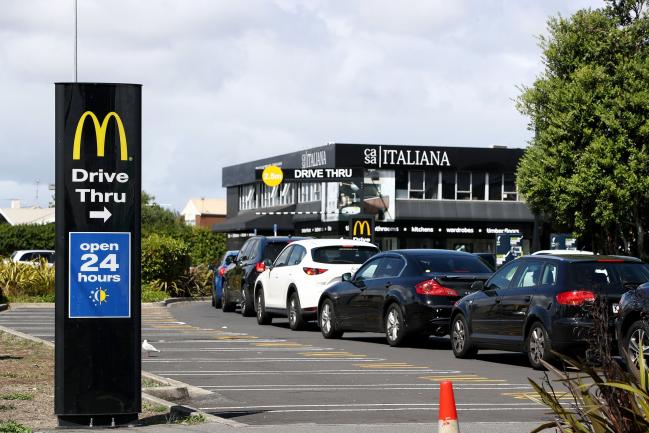(Bloomberg) -- New Zealand emerged from almost five weeks of strict nationwide lockdown on Tuesday, offering a return to work for as many as half a million people and fanning hopes of a pick-up in economic activity.
Prime Minister Jacinda Ardern lowered the alert level to 3, allowing workers to return to factories and construction sites and takeaway food outlets to reopen -- welcome relief for a country that has been in strict self-isolation since March 26. But many businesses will continue to operate with employees working from home, while hospitality outlets and retailers must meet tough criteria to ensure physical distancing with customers is maintained.
“For the majority of people, moving from level 4 won’t feel any different, but that’s not to deny what it will mean economy-wide,” said Stephen Toplis, head of research at Bank of New Zealand in Wellington. “It does mean roughly half a million people will have the opportunity to resume work. For those people life will change dramatically, and activity levels in the economy will change dramatically as well.”
Ardern has closed New Zealand’s borders and imposed one of the strictest lockdowns in the world, saying without those aggressive steps thousands of lives would have been lost during the Covid-19 pandemic. There has been an immediate impact on tourism and commercial activity, with the Treasury Department forecasting the economy will suffer a record contraction in the three months through June even as the government spends more than NZ$20 billion ($12 billion) on wage subsidies and other support. It has promised more help at the May 14 budget.
The government adopted an elimination strategy, arguing that would put the economy in the best position to recover. It appears to have been successful, with New Zealand recording just 1,469 Covid-19 cases and 19 deaths as of Monday. Case numbers are rising by single figures each day even as health authorities conduct a daily average of 5,300 tests.
“The best economic response to the virus is a strong public health response,” Finance Minister Grant Robertson said in a Bloomberg Television interview last week. “The sooner that we can get it under control, the sooner the economy can come back to some sense of normality.”
Rush for Takeaways
For many, the ability to get a takeaway meal is a significant step toward that goal. Queues of cars began forming at McDonald’s Drive-Thrus and other outlets around the country from as early as 3 a.m. this morning, according to local media reports. However, unlike neighboring Australia, where the lockdown has been less stringent, New Zealanders are still unable to get a haircut.
Alert level 4 was the toughest grade of pandemic response, with people required to stay home and only leave for exercise, to buy groceries or go to a doctor or pharmacy. Under level 3, schools will open for some children and low-risk recreation activities are allowed, but businesses can only open for delivery and contactless pre-ordered pick up -- customers cannot enter stores.
The economy runs at about 25% below normal during level 3 compared with 40% less under level 4, according to Treasury assumptions.
Some economists predict GDP will drop more than 20% in the second quarter before surging in the third, but they caution against reading too much into that bounce, saying the overall size of the economy will be much smaller for several years. That reflects both the immediate shock and the more prolonged damage to key industries such as tourism, where job losses are mounting.
NEW ZEALAND INSIGHT: Substantial GDP Hit Despite Virus Success
Ngai Tahu Holdings, which operates iconic ventures like Shotover Jet, last week closed its tourism businesses and said 300 jobs were at risk. Auckland International Airport Ltd. and Air New Zealand have also fired workers as demand stalls.
“Job security has taken a huge hit, as have household incomes, so discretionary spending will be well down even once we leave lockdown,” said Sharon Zollner, chief economist at ANZ Bank New Zealand in Auckland, who expects unemployment to surge to 11%. “The economy needs to reshape, and that’s painful and slow.”
ASB Bank chief economist Nick Tuffley estimates it will take three years before the economy gets back to its pre-Covid starting point, while his counterpart at Westpac New Zealand, Dominick Stephens, predicts the central bank will need increase stimulus by doubling its bond-purchase program and cutting its benchmark rate into negative territory.
New Zealanders will now wait anxiously for the government to decide on May 11 whether to lower the alert level to 2, which would allow most businesses to open, all students to return to school and small social gatherings to take place.
For now, Ardern is urging people to stay at home if possible and restrict social engagement so that the country doesn’t squander the gains it’s made in the battle against the virus.
“We are opening up the economy, but we’re not opening up people’s social lives,” she told a news conference yesterday.
©2020 Bloomberg L.P.
